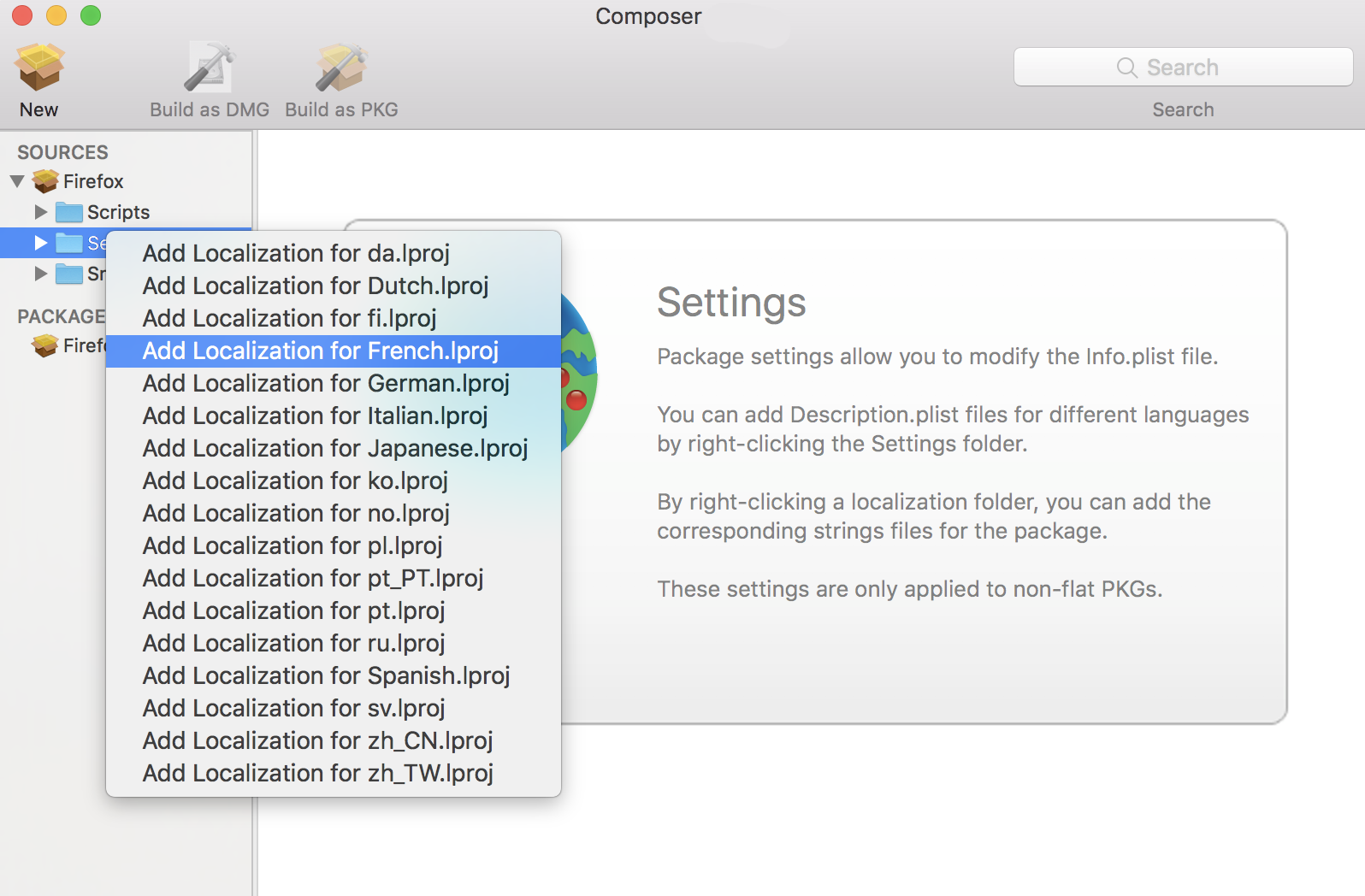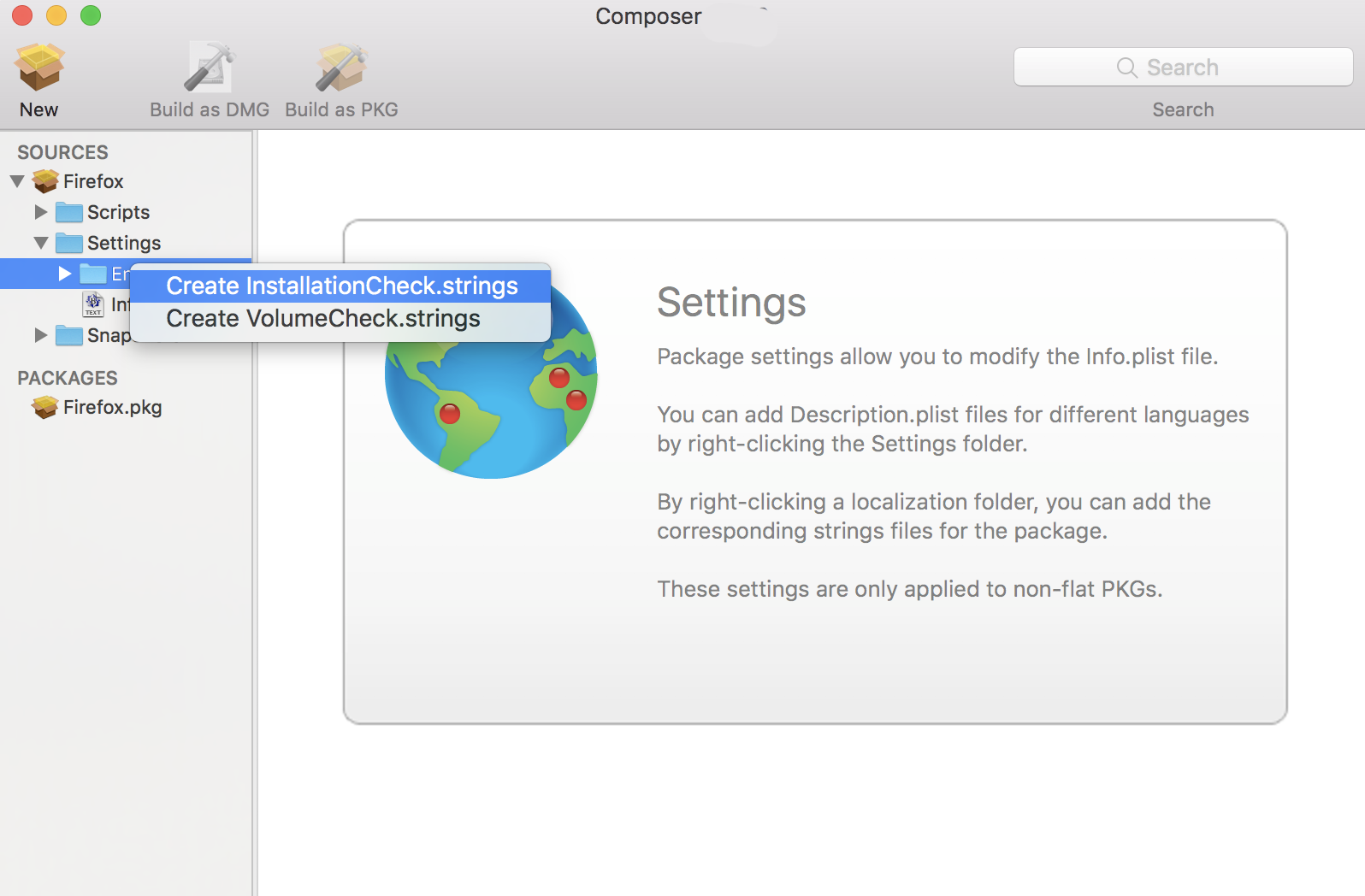Localizations
Localizations allow you to customize the language used when displaying package information to a user. By default, a package source only includes an English localization.
Composer includes defaults for the following localizations supported by the PKG format:
-
da.lproj
-
Dutch.lproj
-
English.lproj
-
Fi.lproj
-
French.lproj
-
German.lproj
-
Italian.lproj
-
Japanese.lproj
-
ko.lproj
-
no.lproj
-
pl.lproj
-
pt_PT.lproj
-
pt.lproj
-
ru.lproj
-
Spanish.lproj
-
sv.lproj
-
zh_CN.lproj
-
zh_TW.lproj
Adding Localizations to Package Sources
Adding and Editing Files for a Localization
You can include two kinds of files in a localization:
- Description.plist files—These files display the title of a package and its description in the Installer application. Each localization contains a description.plist file by default. For instructions on how to edit these files, see Editing the Description.plist File in a Package Source.
- Strings files—VolumeCheck.strings and InstallationCheck.strings files are used to localize warning and error messages. These files are only effective when used in conjunction with their corresponding scripts (VolumeCheck and InstallationCheck). For instructions on how to add VolumeCheck and InstallationCheck scripts to a package source, see Package Source Scripts.



